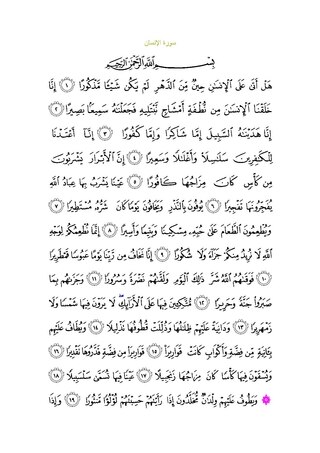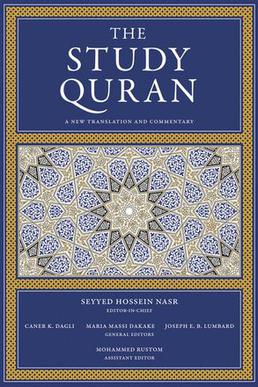
Al-Fatiha is the first chapter of the Quran. It consists of seven verses which consist of a prayer for guidance and mercy.

Yunus, is the 10th chapter (surah) of the Quran with 109 verses (ayat). Yunus is named after the prophet Yunus (Jonah). According to tafsir chronology, it is believed to have been revealed before the migration of the Islamic prophet Muhammed and his followers from Mecca to Medina (Hijra), as such, it is known as a Meccan surah.

As-Sajdah (السجدة), is the 32nd chapter (sūrah) of the Quran with 30 verses (āyāt). The name of the chapter has been translated as ۩ 'prostration' or 'adoration' and is taken from the fifteenth verse, which mentions those who "... fall prostrate and hymn the praise of their Lord".

Saba’ is the 34th chapter (sūrah) of the Qur'an with 54 verses (āyāt). It discusses the lives of Solomon and David, a story about the people of Sheba, challenges and warnings against the disbelievers as well as the promises related to the Day of Judgment.

The Kneeling, is the 45th chapter (surah) of the Qur'an with 37 verses (ayat). It is a Meccan chapter, believed revealed according to the Islamic tradition during the Meccan phase of Muhammad's prophethood. This is one of the seven chapters in the Qur'an that start with the Muqattaʿat Hāʼ Mīm. It contains discussions of "signs of God" for humankind to reflect on, and describes punishments for those who deny God despite the signs. It also contains the only Quranic verse mentioning sharia, a term which Muslims later use to refer to the Islamic law.

Al-Hujurat is the 49th chapter (surah) of the Quran with 18 verses (āyāt). The chapter contains etiquette and norms to be observed in the Muslim community, including the proper conduct towards the Islamic prophet, Muhammad, an injunction against acting on news without verification, a call for peace and reconciliation, as well as injunctions against defamation, suspicion, and backbiting. The chapter also declares a universal brotherhood among Muslims. The thirteenth verse, one of the most famous in the Quran, is understood by Muslim scholars to establish equality with regards to race and origin; only God can determine one's nobility based on his piety.

Al-Wāqiʻa is the 56th surah (chapter) of the Quran. Muslims believe it was revealed in Mecca, specifically around 7 years before the Hijrah (622), the migration of Muhammad to Medina. The total number of verses in this surah is 96. It mainly discusses the afterlife according to Islam, and the different fates people will face in it.

Al-Mujādilah is the 58th chapter (sūrah) of the Qur'an with 22 verses (ayat). Revealed in Medina, the chapter first addresses the legality of pre-Islamic method of divorce called zihar. The name "she who disputes" refers to the woman who petitioned Muhammad about the unjustness of this method, and the chapter's first verses outlaw it and prescribe how to deal with past cases of zihar. The chapter also discusses public assemblies and prescribes manners associated with it. The chapter ends by contrasting what it calls "the confederates of God" and "the confederates of Satan", and promising rewards for the former.

Al-Mumtaḥanah is the 60th chapter (sura) of the Quran, a Medinan sura with 13 verses.

Al-Insān ("Human") is the 76th chapter (surah) of the Quran, with 31 verses (ayat).

Al-Inshiqāq is the eighty-fourth chapter (surah) of the Qur'an, with 25 verses (āyāt). It mentions details of the Day of Judgment when, according to this chapter, everyone will receive reckoning over their deeds in this world.

In Islamic law, Ḥirābah is a legal category that comprises highway robbery, rape, and terrorism. Ḥirābah means piracy or unlawful warfare. It comes from the triliteral root ḥrb, which means “to become angry and enraged”. The noun ḥarb means 'war' or 'wars'.

Joseph E.B. Lumbard is an American Muslim scholar of Islamic studies and associate professor of Quranic studies at the College of Islamic Studies at Hamad Bin Khalifa University in Qatar. He is the author, editor, and translator of several scholarly books and many articles on Islamic philosophy, Sufism, and Quranic studies.

Mofsed-e-filarz is the title of capital crimes, or the person guilty of them, in Iran, which has been translated in English-language sources variously as "spreading corruption on Earth", "spreading corruption that threatens social and political well-being", "corrupt of the Earth; one who is charged with spreading corruption", "gross offenders of the moral order", and "enemies of God on Earth".
The expedition of Kurz bin Jabir Al-Fihri took place in February 628AD, 10th month of 6AH of the Islamic calendar. The attack was directed at eight robbers who killed a Muslim. The Muslims captured the robbers and crucified them. The Quran verse 5:33 about the punishment of those who spread mischief in the land (Fasad), was revealed in this event.
Decapitation was a standard method of capital punishment in pre-modern Islamic law. By the end of the 20th century, its use had been abandoned in most countries. Decapitation is still a legal method of execution in Saudi Arabia and Yemen. It is also a legal method for execution in Zamfara State, Nigeria under Sharia. In Iran, beheading was last used in 2001 according to Amnesty International, but it is no longer in use. In recent decades, extremist Salafi jihadist groups have used beheading as a method of killing captives and terror tactic.

Capital punishment in Islam is traditionally regulated by the Islamic law (sharīʿa), which derived from the Quran, ḥadīth literature, and sunnah. Crimes according to the sharīʿa law which could result in capital punishment include apostasy from Islam, murder, rape, adultery, homosexuality, etc. Death penalty is in use in many Muslim-majority countries, where it is utilised as sharīʿa-prescribed punishment for crimes such as apostasy from Islam, adultery, witchcraft, murder, rape, and publishing pornography.

The Study Quran: A New Translation and Commentary (TSQ) is a 2015 English-language edition of the Quran edited by Seyyed Hossein Nasr and published by HarperOne. Fellow Muslims Joseph Lumbard, Caner Dagli and Maria Massi Dakake, prepared the translation, wrote the commentary, and also served as general editors, and Mohammed Rustom contributed as an assistant editor by checking the translation and writing some of the commentary. Alongside a new English translation and extensive commentary, The Study Quran features numerous essays, maps, and other material.
Maria Massi Dakake is an American scholar of Islamic studies and associate professor of Religious Studies at George Mason University. Her research mainly focuses on Islamic intellectual history, Quranic studies, Shi`ite and Sufi traditions, and women's spirituality and religious experience. She was a contributor to The Study Quran - a modern verse-by-verse commentary of the Quran.
Caner K. Dagli is a Turkish Circassian-American Islamic scholar and associate professor of Religious Studies at the College of the Holy Cross in Worcester, Massachusetts.














